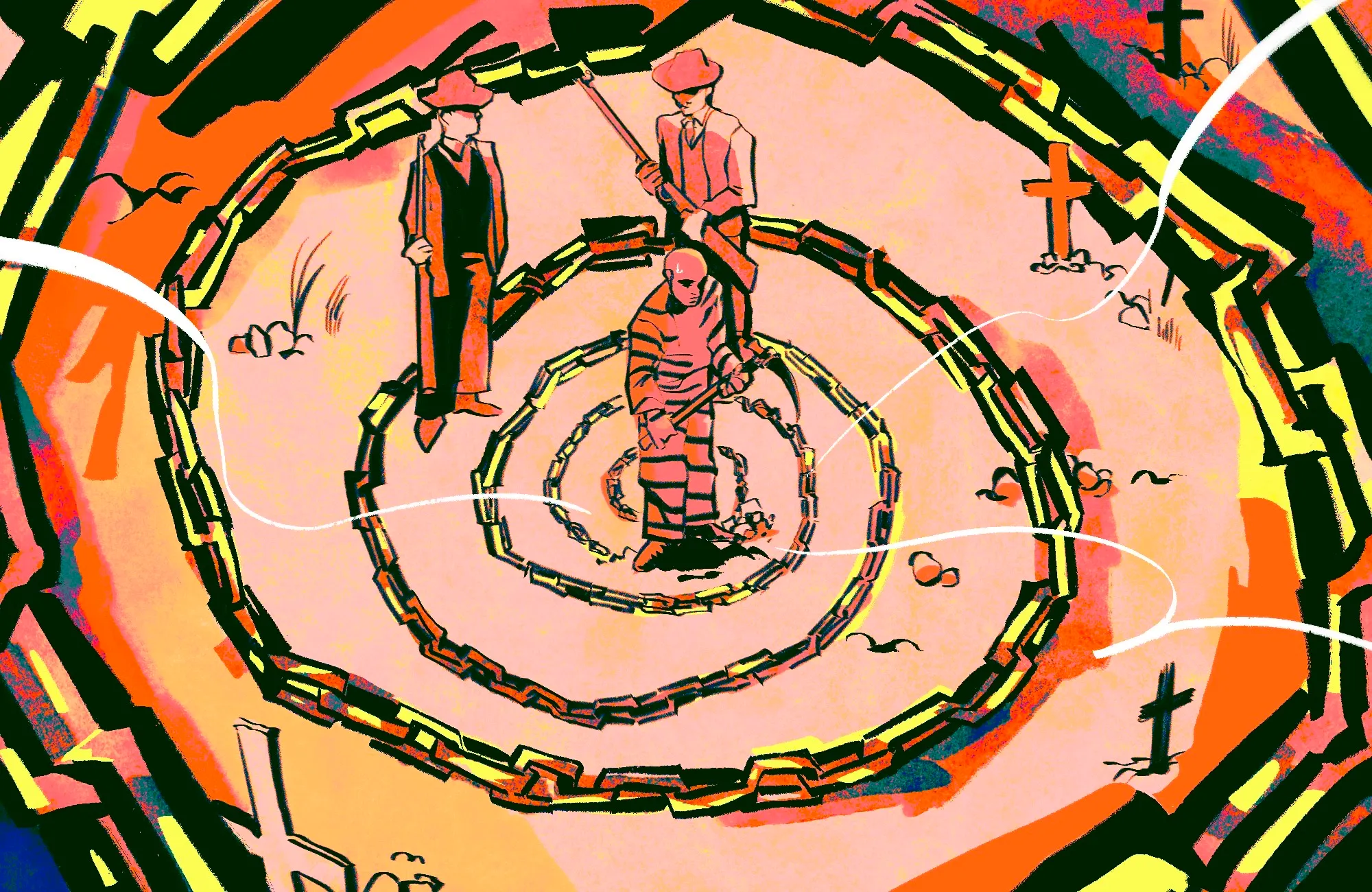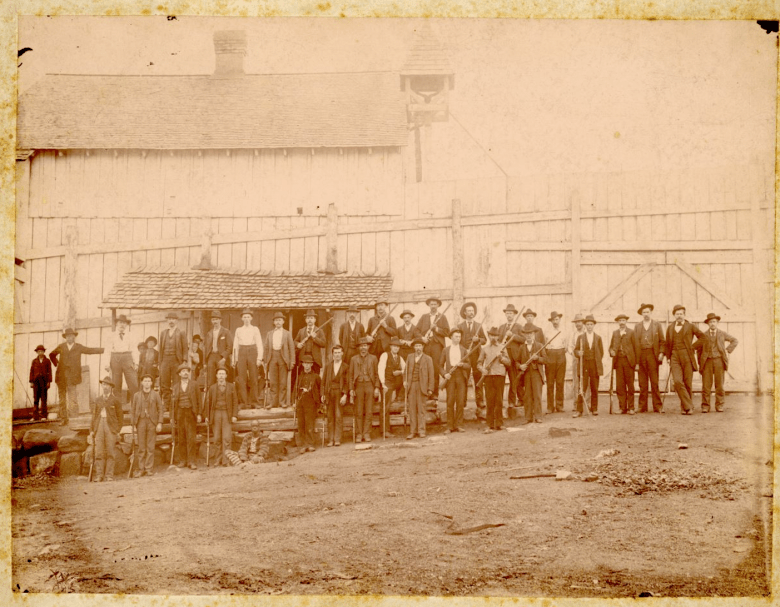
Locked Up: The Prison Labor That Built Business Empires
After the Civil War, a new form of slavery took hold in the US and lasted more than 60 years. Associated Press reporters Margie Mason and Robin McDowell investigate the chilling history of how Southern states imprisoned mainly Black men, often for minor crimes, and then leased them out to private companies – for years, even decades, at a time. The team talks with the descendant of a man imprisoned in the Lone Rock stockade in Tennessee nearly 140 years ago, where people as young as 12 worked under subhuman conditions in coal mines and inferno-like ovens used to produce iron. This system of forced prison labor enriched the Tennessee Coal, Iron & Railroad company – at the cost of prisoners’ lives.
At the state park that sits on the former site of the Lone Rock stockade, relics from the hellish prison are buried beneath the soil. Archeologist Camille Westmont has found thousands of artifacts, such as utensils and the plates prisoners ate off. She has also created a database listing the names of those sent to Lone Rock. A team of volunteers are helping her, including a woman reckoning with her own ancestor’s involvement in this corrupt system and the wealth her family benefited from.
The United States Steel Corporation helped build bridges, railroads and towering skyscrapers across America. But the company also relied on forced prison labor. After U.S. Steel took over Tennessee Coal, Iron & Railroad in 1907, the industrial giant used prison labor for at least five years. During that time, more than 100 men died while working in their massive coal mining operation in Alabama. U.S. Steel has misrepresented this dark chapter of its history. And it has never apologized for its use of forced labor or the lives lost. The reporters push the company to answer questions about its past and engage with communities near the former mines.

Credits
Reporters: Margie Mason and Robin McDowell | Lead producer: Michael Montgomery | Producer: Najib Aminy | Editors: Cynthia Rodriguez and Jenny Casas | Production and research support: Robert Conley, Alexander Richey, Carmen White, Christopher McDonough and Stephen Garrett | Fact checkers: Nikki Frick and Kim Freda | Genealogist researcher: Vicki McGill | Production manager: Amy Mostafa | Digital producer: Sarah Mirk | Score and sound design: Jim Briggs and Fernando Arruda | Post-production team: Kathryn Styer Martínez and Steven Rascón | Interim executive producers: Taki Telonidis and Brett Myers | Host: Al Letson
This episode was produced in collaboration with the Associated Press. Special thanks to Robin McDowell, Margie Mason, and editor Ron Nixon. The AP team had support from Columbia University’s Ira A. Lipman Center for Journalism and Civil and Human Rights in conjunction with Arnold Ventures.
Support for Reveal is provided by the Reva and David Logan Foundation, the John D. and Catherine T. MacArthur Foundation, the Jonathan Logan Family Foundation, the Ford Foundation, the Heising-Simons Foundation, the Hellman Foundation, Democracy Fund, and the Inasmuch Foundation.
